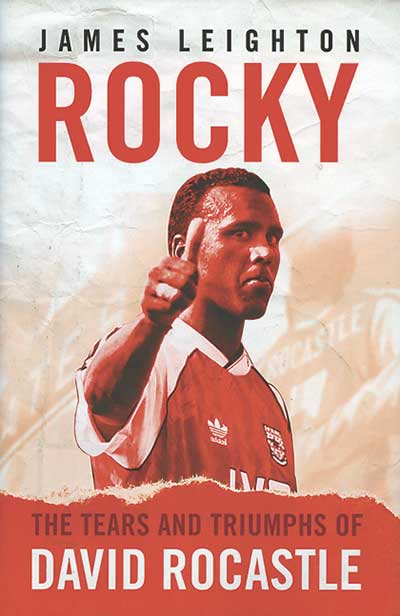 The tears and triumphs of David Rocastle
The tears and triumphs of David Rocastle
by James Leighton
Simon & Schuster, £18.99
Reviewed by David Stubbs
From WSC 355 September 2016
David Rocastle commands enormous affection among Arsenal fans, who have a special fondness for their underachievers; Charlie Nicholas and John Jensen spring to mind also. In Rocastle’s case, he was luckless with injuries over the course of his career and, sadly, suffered the supreme misfortune of dying in 2001 aged just 33 of Non-Hodgkin lymphoma. In the decade he spent at Arsenal, however, he is remembered as a player who on his day was able to conjure flashes of Brazilian-style magic for an Arsenal team whose success was generally earned, under George Graham, through more pragmatic means.
James Leighton’s account evokes a recent but very different era of football and British life; of Saint and Greavsie and open, unabashed racism, on and off the terraces, an era when £60,000 was what a player like “Rocky” was paid per annum, not per week. Rocastle grew up in Honor Oak, south London, and in his early teens was rejected by Millwall, whose eagerness to scout for local black talent wasn’t matched by visionary aptitude; they also turned down Paul Elliott and Ian Wright.
Nonetheless, Rocastle persisted, his character a combination of laid-back pleasant and fiercely combative, with a protective streak that came from looking after his brother and made him a man not to be crossed. The words “Never forget who you are. Where you come from. And who you represent”, introduced to him by a manager at Lewisham Way Youth Club, became a mantra to him, one which he would repeat when geeing up his Arsenal team-mates during the last game of the season at Anfield in 1989.
Leighton has come up with a clever, even Quentin Tarantinoesque way to deal with the narrative of Rocastle’s life and career, which, told straight, would be somewhat anti-climactic, then tragic. In alternate chapters he deals with the chronology of Rocastle’s ultimate disappointments; looked over in favour of David Platt at the 1990 World Cup, then leaving Arsenal to play out a diminishing career at Leeds, Manchester City, Chelsea, Norwich and Hull City on loan, while still in his 20s. Parallel to that, he tells the story of Rocastle’s rise and rise at Arsenal, culminating in his involvement in the Gunners’ astonishing 2-0 victory away at Liverpool to snatch at the last the League title they looked to have relinquished. That high point is the book’s finale.
Some might debate whether Rocastle’s life and career merits a book of this length and Leighton does fill out these pages with match reports and events, including Hillsborough and the 1987 League Cup final in which “Rocky” was hardly central. That would be churlish, however. Reading this book, it’s impossible not to understand the deep bond he formed with Arsenal fans and to be wistful at what might have been. This is a highly readable account.
One tiny point, however. Early on, the author tells us that, off the back of an interview with the magazine, Rocastle was asked to write a weekly column for Melody Maker, in which he offered readers advice on topics such as how to get hold of Canadian electro-Goths Skinny Puppy’s debut album. This, I fear, was a spoof; I know it was, because I wrote it. It wasn’t terribly funny, hence the misunderstanding, perhaps, in which case, I apologise.